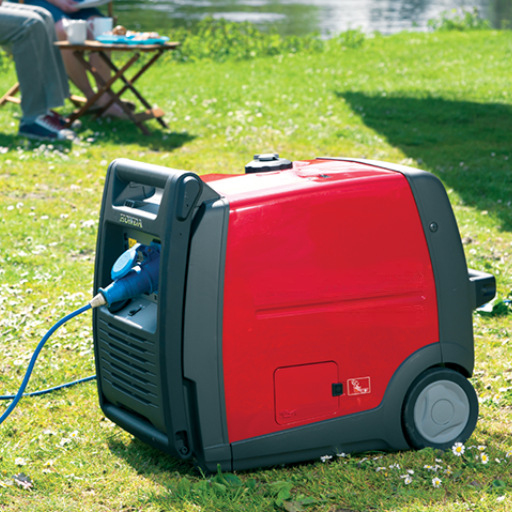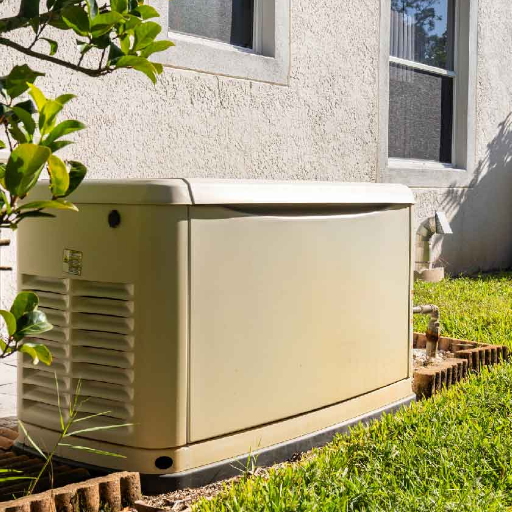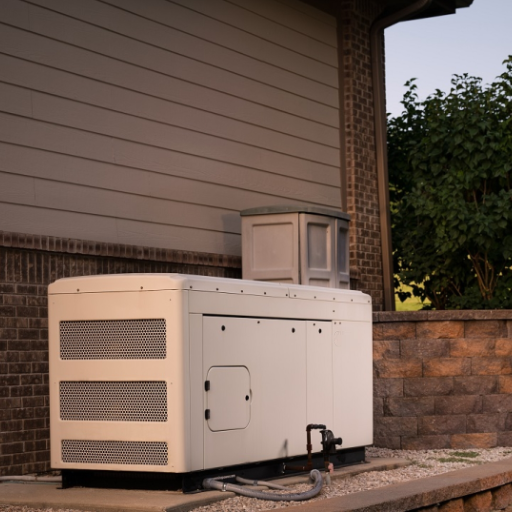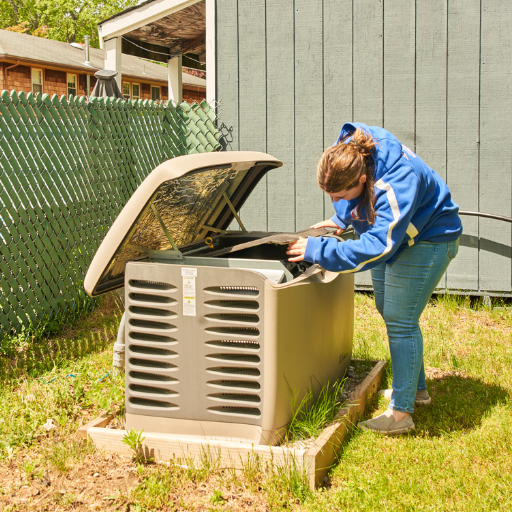Powering a construction jobsite efficiently is critical to maintaining productivity, meeting deadlines, and ensuring that every tool operates seamlessly. Portable generators have become a vital component of modern construction projects, providing a dependable source of energy in areas where access to electricity is limited or unstable. However, selecting the right portable generator requires a detailed understanding of how power demands, site conditions, and equipment compatibility interact. This article dives into the key factors to consider when choosing a portable generator tailored to the specific needs of your construction jobsite. Whether you’re managing a small-scale project or a large operation, this guide will equip you with the insights required to make an informed decision that enhances efficiency and avoids costly interruptions.
How Does a Portable Generator Provide Power at a Construction Site?

Understanding Generator Power Output and Voltage
The construction site requirements and the power output of a portable generator have a very critical relationship, which makes portable generator power output a number to pay attention to. It’s typically measured in watts or kilowatts, making power output something that determines the number of tools and devices that can be used at the same time. Generators are also rated using two different figures, and these are starting watts (surge power) and running watts ( continuous power). Starting watts are given to the power made by certain equipment at the beginning, like compressors or larger power tools. Running watts, on the other hand, describe the output of energy that must be maintained for operation.
Another critical factor to take into consideration regarding construction sites is voltage, for different sites have equipment that works on standard 120V for smaller devices and 240V for bigger devices. Multi-voltage functionality adaptability is advantageous on diversified worksites. It is also important to remember that there is a certain amperage and voltage for each tool, which, if not followed, causes damage to extremely sensitive equipment.
In order to select the correct generator for your job site, a thorough power analysis must be performed considering peak concurrent usage, tool needs, and any expansion plans. By properly evaluating these factors against the generator’s output rating and considering relevant electrical safety regulations, operators can maximize productivity while minimizing costly downtime.
The Role of Generators in Ensuring a Reliable Power Supply
From industrial job sites to residential backup systems, generators serve a pivotal purpose in providing an uninterrupted power supply. The devices operate by transforming mechanical energy into electrical energy, commonly employing an internal combustion engine connected to an alternator. Power availability is especially critical in circumstances when sophisticated medical instruments or data storage systems require an uninterrupted electricity supply.
Generators have become more efficient and reliable with modern advancements such as the addition of automatic transfer switches (ATS) and inverter systems. ATS allows for seamless transitions between power sources which provides electricity during grid outages, while inverter technology produces clean and stable energy conducive to sensitive electronics. Moreover, real-time monitoring systems with operatng metrics provide insights that enable performance optimization through maintenance schedule adherence.
Selecting and using a generator still requires proper assessment of the load details, the environment, and other applicable electrical regulations. Taking these aspects into account allows operators to maintain a reliable and consistent power system while alleviating problems related to power interruptions and voltage oscillations.
Why Construction Sites Need Backup Power Solutions
Job sites are very fluid in their day-to-day activities, and consistent access to power is necessary for productivity, safety, and timely delivery of project milestones. These sites, given their unique setup augmented with portable tools and machinery, require reliable backup power systems. This becomes all the more vital considering the erratic power disruptions stemming out of grid unavailability, severe weather conditions, or remote locations with scant service access.
Disruption in the usage of portable generators and automatic transfer switches results in operational shutdowns for critical machinery such as cranes and drilling machines, which also affects lighting and communication systems. It has been studied that downtime alone, owing to power loss, negatively affects financial targets by thousands of dollars per hour, depending on power requirements. Aside from the primary expenditures, the systems in backup will also help maintain compliance with occupational safety requirements, which outlines accidents resulting from lack of proper illumination, active safety mechanisms, and functional hazard prevention engineering sustained features onboard.
Recent innovations in generator technology, such as monitoring and fuel management, facilitate economical power redundancy tailored to diverse applications. In addition, utilizing green systems such as low emission diesel, hybrid generators, or even diesel engines help achieve environmentally responsible emissions and operational sustainability goals. Therefore, the incorporation of auxiliary power solutions is not only an emergency backup, but also a fundamental requirement for planning the successful enduring reliability of construction projects.
What Are the Different Types of Generators Available for Construction?

Comparing Inverter Generators and Conventional Generators
Comparing inverter generators with conventional models requires a proper understanding of their unique features, applications, and technologies, which distinguish both of them. A traditional generator has an internal combustion engine that powers an alternator, generating an AC output, keeping a constant energy level according to the engine speed. A lot of these generators focus on high power outputs, which is the most useful for heavy-duty equipment at construction sites. This type of generator is bulky, noisy, and energy inefficient, while it also lacks focus on output regulation.
In contrast to the AC alternators, inverter generators utilize advanced electronic circuits, modern construction, communication, diagnostic tools, and computer equipment use require extremely sensitive and fragile power sources. Inverter generators also have compact dimensions, greater fuel efficiency and run quieter compared to the traditional models, however, this does result in the limitation of maximum power output.
Inverter generators are more effective when power requires fuel economy and mechanical and electrical finesse, while conventional generators provide raw, large-scale power for large pieces of equipment. Large-scale construction projects would be better provided for if both types of generators were used, depending on their situational demand, providing a smoother experience for their diverse operations.
Heavy Duty vs. Portable Generators: Which is Best?
Choosing between a heavy-duty and portable generator requires thorough consideration of their operational needs, power requirements, and environmental impacts. Portable generators are typically powered by diesel or gas and are specially designed to run nonstop under harsh circumstances, including construction sites and industrial facilities. These units can produce a lot of power, normally greater than 50 kW, which enables the use of large equipment or powering entire buildings during outages. But this power comes at a cost, such as higher noise levels, fuel consumption, and maintenance demands.
On the other hand, portable generators are easier to move around and are more user-friendly. They are capable of delivering power outputs from 1 kW to 10 kW, making them appropriate for lighter and short-term tasks like powering small appliances, hand tools, or even events. In addition, most portable gas generators today use inverter technology, which guarantees the production of cleaner and more stable voltage, essential for sensitive electronics. Moreover, their portable design and high fuel efficiency make them suitable for scenarios that require quick deployment.
In the case of portable generators, their preeminence is clear where they excel in their flexibility and ease of transport, which makes them ideal for short-term power usage. Furthermore, heavy-duty generators prevail in circumstances where there is a high energy demand as well as a need for a dependable power source for extended periods. An assessment of the structure of the generator’s power demand, operational context, and the cost-benefit analysis is crucial to find the best option that meets all expectations.
The Advantages of Diesel Generators in Construction
The unrivaled efficiency and dependability of diesel generators in challenging settings have made them essential for construction work. One of the key benefits of diesel generators is that they are more fuel-efficient than gasoline-powered ones. Since diesel engines work at higher compression ratios, more energy is released per unit of fuel. This efficiency is extremely useful for construction projects that require a lot of power and need to restrain costs.
Their durability and robustness are another critical benefit. It is well known that diesel generators are meant to endure extensive wear and tear, as these are built for construction sites that face harsh weather and difficult terrain. Extreme duration of continuous operation is guaranteed by their design, which means that vital apparatus such as cranes, concrete mixers, and welding tools have a constant power supply.
Besides, the absence of spark plugs together with less frictional damage to the moving parts translates to lower wear and lower maintenance for diesel generators. This further increases the output of diesel powered generators. They can also provide immense amounts of power, being able to economically fuel both smaller endeavors and larger, heavily energy demanding projects. Bringing these three qualities together, diesel generators enable the modern construction industry to progress.
What to Consider When Choosing a Generator for Your Construction Jobsite?

Assessing Power Equipment Needs and Requirements
While considering the power equipment needs for a construction site, it is crucial to first calculate the total wattage required to run all equipment and tools at the same time. Starting wattage requires attention because it is usually higher in the beginning phases of operation for certain units, such as compressors, welders, or mixers. They also have running wattage that covers ongoing energy needs. To avoid damage to equipment and delays to projects, it is essential to avert fluctuations or failures during peak load handling.
In addition to the aforementioned considerations, power requirements should also look into the type of devices being powered. Heavy machinery may warrant a different model that requires high end torque capabilities, while sensitive electronics like control systems or surveying tools may require a generator to have inverter technology within it for stable and clean power output.
The final consideration involves the weather, noise regulations, and terrain around the job site as these factors significantly impact project location. Generators with rugged low-noise operation and those built for extremely harsh temperatures may aid greatly depending on the nature of the project.
Evaluating Fuel Types: Gasoline, Diesel, and Propane
When considering the appropriate type of fuel to power an equipment, its availability, cost, environmental implications, and overall efficiency remain crucial factors to examine. Each fuel variant has its advantages and restrictions which may impact the specific needs of the job site.
- Gasoline: Due to the availability of gasoline, gasoline generators are very common and adaptable. They are usually more compact and lightweight, making them suitable for smaller or temporary projects. Unfortunately, compared to other fuel types, gasoline is more volatile and less efficient. In addition, its higher emissions and volatility make it unsuitable for many environmentally sensitive worksites.
- Diesel: Diesel generators are well-known for their durability, efficiency, load-bearing capacity, and suitability for industrial long-term applications. Diesel fuel has a lower risk of flammability and can be stored for longer periods than gasoline. In addition, diesel engines are generally more reliable, as there’s no need for maintenance with spark plugs. On the downside, though, diesel generators are noisier and emit more fumes without advanced exhaust systems or filters.
- Propane: Propane is stored as liquid petroleum gas (LPG) and is a cleaner-burning fuel compared to gasoline or diesel. It has lower emissions, can be stored for long periods without deterioration, and therefore ensures fuel reliability over time. Quieter than other fuel-powered generators, propane generators are ideal in noise-sensitive environments. On the other hand, propane has a lower energy density than diesel, which may require more frequent refilling in larger applications. The lack of fill-up stations and the need for specialized storage tanks pose logistical problems.
Each fuel type has its benefits and limitations, which are important for the contractors because they help fulfill operational, environmental, and financial needs.
How Do Inverter Generators Benefit Contractors?

Benefits of Inverter Generators for Power Tools
Inverter generators are extremely beneficial for contractors using power tools in strenuous environments. One of the main advantages includes clean, stable power with low total harmonic distortion (THD). Such features are very important for delicate tools and equipment that constantly need a specific voltage and current to minimize the chances of overheating or premature wear.
In addition, inverter generators are equipped with fuel-efficient designs due to their variable engine speed, which can adjust according to the required output. This change leads to reduced fuel consumption compared to traditional generators that run at a constant speed, especially under low workloads. This not only reduces operating expenses but also minimizes environmental damage by reducing fuel emissions. In addition to being compact, portable, and easy to transport between job sites, inverter generators serve an even greater purpose.
The operation of an inverter generator is much quieter than that of traditional ones and produces fewer vibrations. Combined with advanced dampening technology on sound and even engine operation, inverter generators are quieter than traditional models for contracting work. This is good news for contractors who work in sensitive areas or those bound by local noise regulations, as it minimizes noise pollution. In essence, inverter generators stand out as dependable and efficient power solutions designed to fulfill the distinct requirements of professional contractors.
Portable Inverter Generators for Flexibility on Site
The lightweight and compact designs of portable inverter generators make transporting and setting up on site effortless. They, too, employ advanced inverter technology for a clean and stable power supply, suitable for sensitive electronics and heavy-duty tools alike.
Modern portable inverter generators have demonstrated an improved fuel efficiency, running up to 12 hours on a single tank of gas. Many models available today also feature parallel capability, allowing contractors to link two units together for increased power output without sacrificing portability. With these models, operators can adjust to varying power requirements without the need of changing equipment.
Modern protective casings and weather-resistant materials further enhance the durability of portable inverter generators, making reliable to operate in diverse environmental conditions. Coupled together with flexible output options, they enable portable inverter generators to become invaluable for contractors.
Inverter Generators and Their Impact on Fuel Efficiency
The advancement of inverter technology in portable power generators has dramatically transformed their fuel economy. Unlike traditional generators, which run at a constant speed regardless of power demand, inverter generators vary their engine speed in direct proportion to the amount of power that needs to be drawn. This capability reduces fuel wastage to a considerable extent.
Take a conventional generator as an example; it takes a full-speed approach to powering a small appliance when in reality, it would operate much more efficiently at a fraction of that pace. An inverter generator is better suited to meet these needs as it can modify its activity levels to attend to demand, which recent studies indicate translates into 40% savings on fuel consumption during low-load scenarios.
Additionally, these generators can also be programmed with eco-mode settings, which further enhance fuel economy by working under low-load conditions. This leads to lower emissions and operating costs over time. In combination with the use of new materials that boost fuel heat efficiency and reduce internal friction, inverter generators can outperform all existing benchmarks for sustainable energy use. These benefits improve inverter generators’ cost-effectiveness, environmental benefits, and reliability in portable power tools, making them the preferred choice for many consumers.
Where to Find Reliable Power Equipment for Construction Sites?

How to Request a Quote from a Trusted Dealer
Obtaining a quote from an equipment vendor necessitates a well-planned step-by-step strategy to capture the correct pricing and determine whether the equipment meets the requirements. To begin, seek dealers who have been in business for quite some time and check their credentials or partnerships with important OEMs. Visit the dealer’s site, or contact the dealer and give them all the information required for your equipment, including the kind of equipment, its capacity, intended operational conditions, and other required features extra.
When contacting her, remember their pricing policies regarding price inclusiveness, lead time, warranty period, and other peripheral services such as maintenance scheduling, technical support, etc. For ease of quote detail specification, consider drafting an RFQ explaining your project, including, but not limited to, financial requirements, construction period, and implementation period.
Moreover, emphasize quality, service, and projected operational costs as opposed to the quote’s nominal value among competing vendors. Trust these procedures with no doubt aids one to make decisions as far as reliable equipment to power for the construction site is concerned.
Exploring Generator Rental Options for Short-Term Projects
Renting generators for short term projects allows for easy cost management and operational flexibility for businesses whose power needs are temporary. The first step in selection should start with determining the power requirements for the project, including the required wattage for equipment, tools, and systems that may be used simultaneously. Today’s rental generator companies have all sorts of options, from small, portable generators to big, industrial-sized machines.
When comparing different rental services, it is very important to take into consideration things like equipment dependability, fuel consumption, noise level, and their availability of course technical support. Some vendors offer other relevant services such as on-site delivery, installation, and round-the-clock maintenance that help reduce project downtime. Moreover, taking an account the leasing terms and understanding the additional costs set for things like penalty overuse, delivery fee, or sometimes, additional fee for equipment misuse helps align the costs.
A lot of supplied generators now feature low-emission technologies, which help them stay compliant with the law. This change promotes environmental compliance for projects operating with time constraints while still ensuring simple operational efficiency. At the end of the day, meeting all the requirements about your project by renting makes sure you conserve time and resources while avoiding the long-term commitment of ownership.
References
Frequently Asked Questions (FAQs)
Q: What are the key features to consider when choosing the best portable generator for a construction jobsite?
A: When selecting a construction generator, consider factors like fuel type (natural gas, gasoline, or diesel), fuel tank capacity, electric power output, portability, noise level, and certain features such as GFCI outlets and idle control. These features ensure that the generator must provide temporary power efficiently and safely.
Q: How do I determine the right size and power output for my construction generator?
A: Calculate the total wattage required by adding up the wattage of all tools and equipment you plan to use. Choose the right generator that offers at least 20% more power than your total requirement to handle startup surges and ensure reliable operation during power outages for tools.
Q: Can a portable generator be used as a backup power source during a power outage?
A: Yes, portable generators can be used to provide emergency power during a power outage. However, they are not as reliable as standby generators and should be used for temporary power needs only.
Q: What are the benefits of using a Honda or Generac generator at a construction site?
A: Honda and Generac are reputable companies known for producing reliable and efficient generators. Honda generators are praised for their quiet operation and fuel efficiency, while Generac offers robust power output and durability, making them suitable for demanding construction environments.
Q: Is it important to have certain features like GFCI on a construction generator?
A: Yes, having GFCI (Ground Fault Circuit Interrupter) outlets is crucial for safety on a construction site. They help prevent electrical shocks by cutting off the electric power if a ground fault is detected, protecting users and reducing the risk of accidents.
Q: How can I ensure my construction generator runs efficiently and reduces noise?
A: To reduce noise, choose generators that have sound-dampening features or enclose them in noise-reducing housings. Maintaining your generator, including regular oil changes, air filter replacements, and using the correct fuel, will ensure it runs efficiently and quietly.
Q: Are there any environmental considerations when using generators on a construction site?
A: Yes, consider using generators that comply with emissions standards and choose models that offer efficient fuel consumption to minimize environmental impact. Also, consider using solar-powered generators if feasible, as they provide a clean energy alternative.
Q: How can I safely use extension cords with a portable generator on a construction site?
A: Use heavy-duty extension cords rated for outdoor use. Ensure they are the appropriate gauge for the generator’s output to prevent overheating. Keep cords away from water and traffic areas to avoid damage and ensure safe operation.








